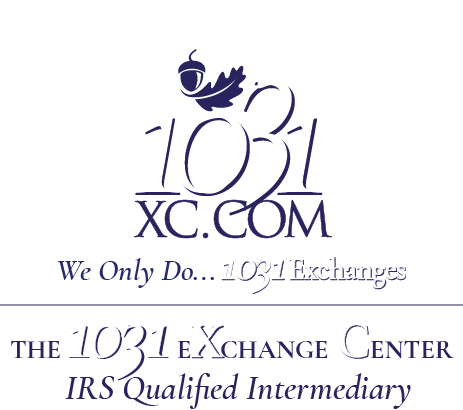
Over 50 years serving Real Estate Investors
Trusted, Prompt, Accurate, Reliable, Proven, Financially Secure. Where should you start...CLICK
Myths
Any real property primarily "held for productive use in a trade or business or for investment" qualifies as "like-kind" under 1031, even different types.
The 1031 Exchange Center LLC is an IRS Qualified Intermediary that is not permitted to give legal or tax advice. Please consult with your legal or tax advisors concerning your specific case. But for a complimentary confidential evaluation, please click the button below.
© 2026
The 1031 Exchange Center LLC
All rights reserved

